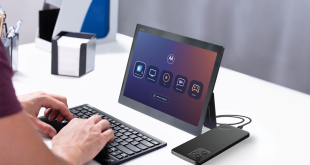Microsoft is the latest company to become embroiled in the smartphone geolocation privacy revelations but appears to have taken privacy issues more seriously than rivals Apple and Google.
Windows Phone 7 smartphones also regularly transmit the owner’s geographic location, including exact GPS position, back to Microsoft servers in a practice which has come under increased scrutiny by privacy advocates and lawmakers.
Microsoft use the data for the same reason that Google does with Android, to build a geographic database of wi-fi hotspots which can be used to provide very accurate location even with GPS enabled or when inside, which is more often than not for most smartphones.
The data sent is similar to that of the data Android smartphones send, consisting of a geographic location, wi-fi hotspots within range and a unique identifier. However Microsoft have, to their credit, provided a user-friendly web page which explains exactly what the firm collects when location services are enabled, and why.
One key difference between Windows Phone 7 and Android relates to the unique identifier that is transmitted along with the geolocation data. Google’s smartphone OS sends a unique device ID which the firm says cannot be traced to a user.
However the firm’s own privacy policy points out that the device ID is associated with a Google account, so while Google may say they don’t use it to track users, they most certainly could do, or they could be compelled to do so by law.
Microsoft’s location and privacy page reveals a different strategy.
"When users contribute location information from their mobile devices to Microsoft’s location services, we collect a randomly generated ID to identify a particular device, which is retained for a limited period."
A ‘randomly generated’ id is one clearly different from a unique device ID and in any event is not an id registered against a Microsoft account.
Concern first arose with the revelation that iOS devices have kept an infinite record of regularly updated GPS location and wi-fi hotspots in a file which is unencrypted and backed up to host computers via iTunes.
Android also keeps a log of this data on the phone, although it’s not automatically synced to a computer and it’s trimmed to the last hundred or so entries.
Microsoft, however, store no GPS data on the phone. This coupled with a clear Q&A style privacy information page and random device ID would appear to place the newest smartphone OS at the top of the class as far as the geolocation privacy issues are concerned.
 PCR Tech and IT retail, distribution and vendor news
PCR Tech and IT retail, distribution and vendor news


